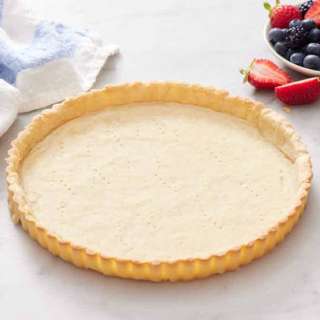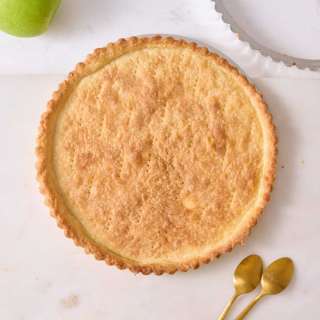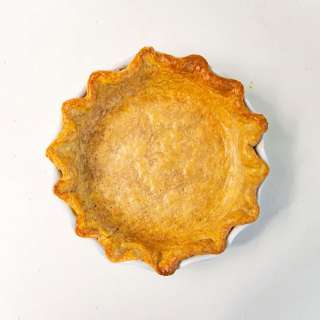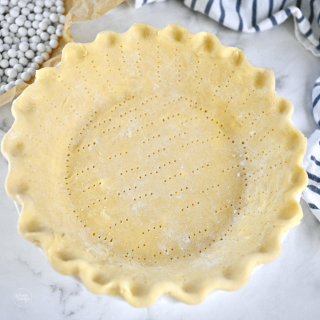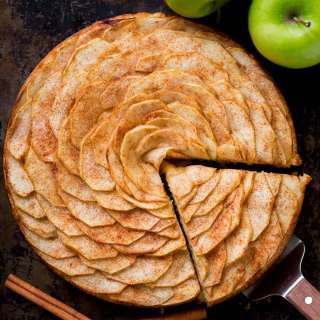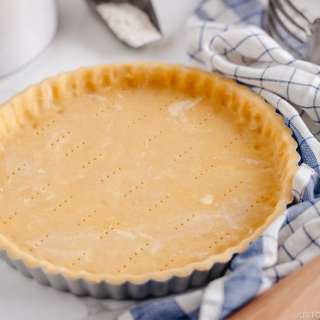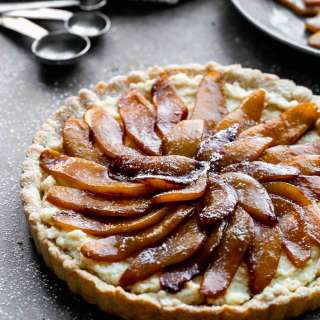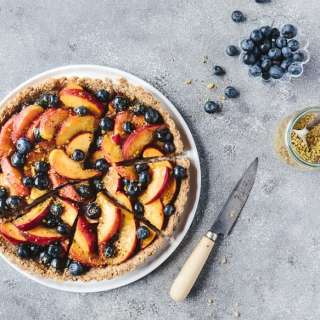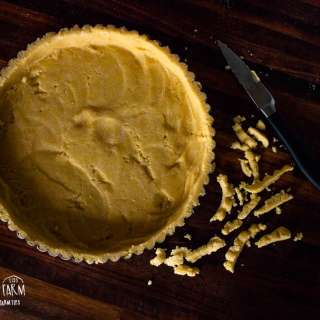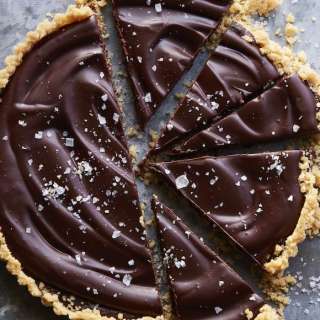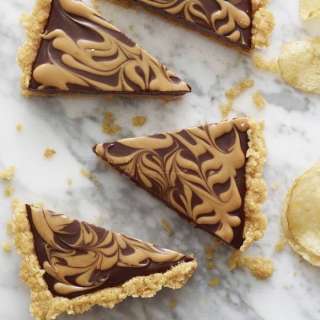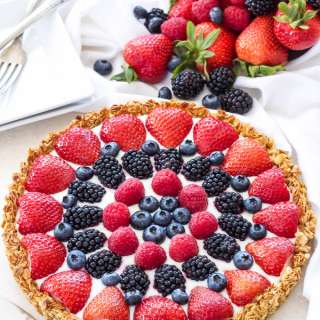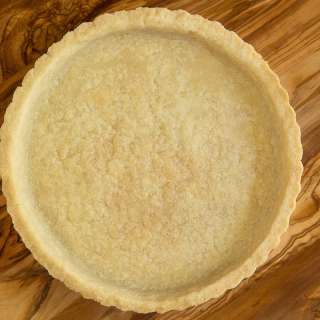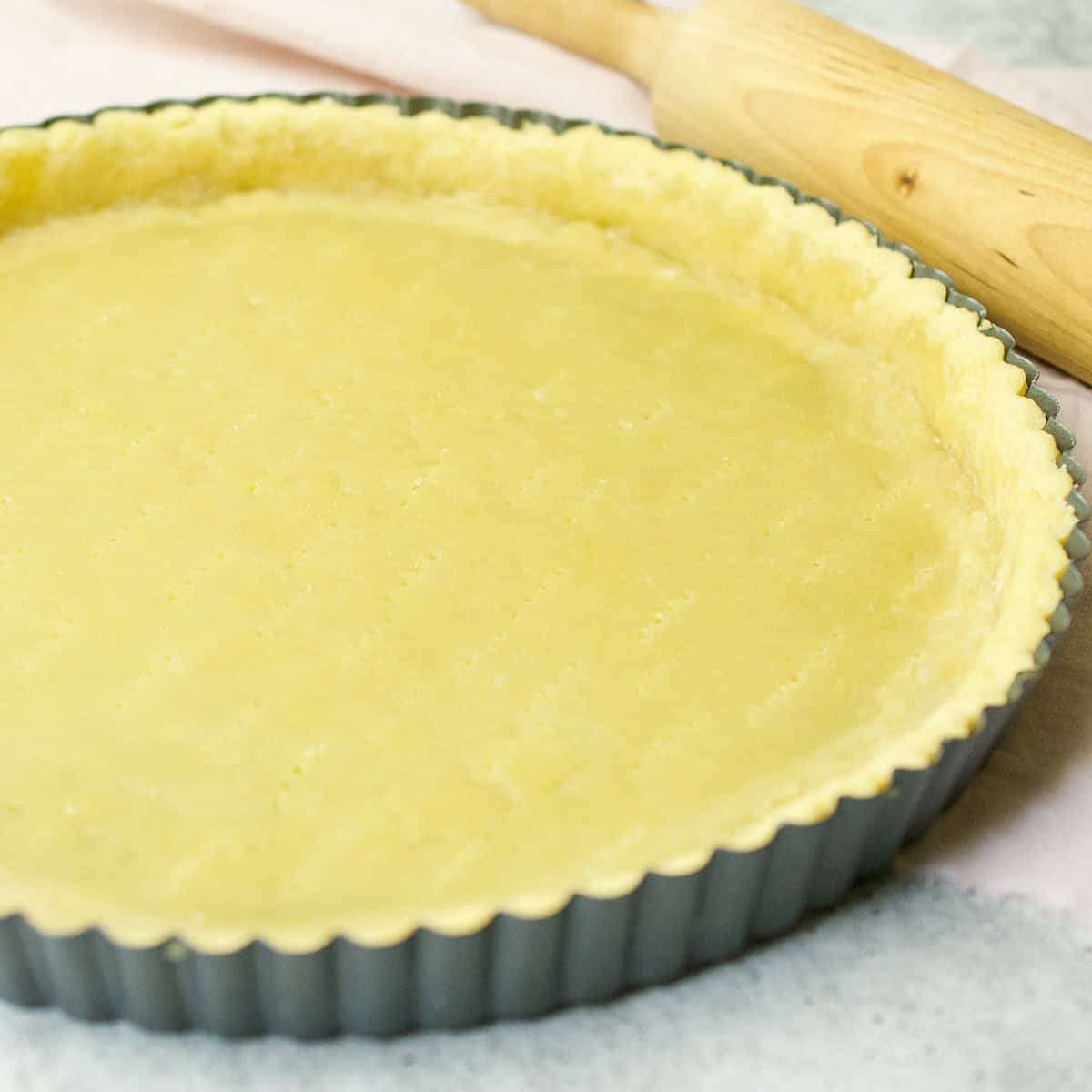
Tart Crust Recipe
User Reviews
5.0
3 reviews
Excellent

Tart Crust Recipe
Report
This easy-to-follow tart crust recipe makes a perfectly buttery, sweet, and crisp base for your favorite fruit, custard, or chocolate fillings.
Share:
Ingredients
- 2 cups flour
- ¾ cup unsalted butter (see notes)
- 2 egg yolks
- 3 tsps heavy whipping cream
- ½ cup powdered sugar (see notes)
- ⅜ teaspoon salt
- ¾ teaspoon vanilla extract
Instructions
- Mix the flour, powdered sugar and salt.
- Slice the chilled butter and add it to the flour mixture using a pastry cutter. Blend till you have a dry, crumbly mixture.
- Add the chilled cream and beaten egg yolk and continue to blend with the pastry cutter till the mixture becomes more moist. (see notes)
- Shape the dough into a disc, wrap it in plastic wrap, and chill it for an hour.
- After an hour, remove the dough and let it sit on the counter for 5-10 minutes so you can easily roll it out on a lightly floured surface. (see notes)
- Transfer the rolled dough to your tart tin and cut off any excess dough with a knife. (see notes)
- Bake as needed according to your recipe.
Notes
- The butter—I like to use unsalted Kerrygold butter for the tart crust. Its high fat content results in a crisper crust.
- The sugar - Always use confectioner sugar as it contains 3 % cornstarch which helps make the crust light and crisp.
- Use a pastry cutter - While it may require more effort, it offers unparalleled control, resulting in a superior tart crust. Unlike a food processor, which can overwork the dough with just a few extra pulses, a pastry cutter lets you master your dough's consistency.
- Problems with the dough - If your dough isn't quite coming together and seems too dry, add 1-2 tablespoons of chilled water, as needed. Please be careful not to add too much water because this can make the crust too tough.
- The best tart tin to use - Glass or dark metal tins work best for baking as they have better heat absorption, and the crust is less likely to be soggy. Similarly, baking on the bottom rack of the oven and cooling properly on a wire rack also helps ensure your crust isn't soggy.
- How to fix cracks in the dough -If your dough cracks when you transfer it to your tin, dip a finger in chilled water and seal the cracks so your filling doesn't slip through. If the dough stretches too thin, I use excess dough scraps to patch these areas.
Nutrition Information
Show Details
Serving
1g
Calories
212kcal
(11%)
Carbohydrates
21g
(7%)
Protein
3g
(6%)
Fat
13g
(20%)
Saturated Fat
8g
(40%)
Polyunsaturated Fat
1g
Monounsaturated Fat
3g
Trans Fat
0.5g
Cholesterol
64mg
(21%)
Sodium
77mg
(3%)
Potassium
31mg
(1%)
Fiber
1g
(4%)
Sugar
5g
(10%)
Vitamin A
416IU
(8%)
Vitamin C
0.01mg
(0%)
Calcium
11mg
(1%)
Iron
1mg
(6%)
Nutrition Facts
Serving: 12people
Amount Per Serving
Calories 212 kcal
% Daily Value*
| Serving | 1g | |
| Calories | 212kcal | 11% |
| Carbohydrates | 21g | 7% |
| Protein | 3g | 6% |
| Fat | 13g | 20% |
| Saturated Fat | 8g | 40% |
| Polyunsaturated Fat | 1g | 6% |
| Monounsaturated Fat | 3g | 15% |
| Trans Fat | 0.5g | 25% |
| Cholesterol | 64mg | 21% |
| Sodium | 77mg | 3% |
| Potassium | 31mg | 1% |
| Fiber | 1g | 4% |
| Sugar | 5g | 10% |
| Vitamin A | 416IU | 8% |
| Vitamin C | 0.01mg | 0% |
| Calcium | 11mg | 1% |
| Iron | 1mg | 6% |
* Percent Daily Values are based on a 2,000 calorie diet.
Genuine Reviews
User Reviews
Overall Rating
5.0
3 reviews
Excellent
Other Recipes
